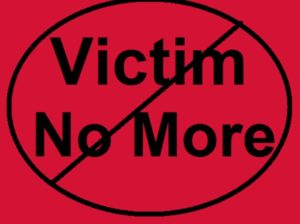Verbal abuse 언어폭력
Verbal abuse (also verbal attack
or verbal assault) is the act of
forcefully criticizing, insulting,
or denouncing another person.
Characterized by underlying anger
and hostility, it is a destructive form of
communication intended to harm
the self-concept of the other person
and produce negative emotions.
Verbal abuse is
a maladaptive mechanism
that anyone can display occasionally,
such as during times of high stress
or physical discomfort.
For some people,
it is a pattern of behaviors
used intentionally to control
or manipulate others
or to get revenge.
언어폭력(언어공격, 언어폭행)이란
강압적으로 상대방을 비판하거나
모욕하거나 비난하는 행위이다.
특성은 저변에 내재된 분노와 적대감이며,
파괴적인 대화 형식으로서 의도적으로
상대방의 자아개념을 해치고
부정적인 감정을 일으키게 하는 것이다.
언어폭력은 부적응 메커니즘으로서
누구든지 상황에 따라, 즉 스트레스가 많을 때나
몸 상태가 좋지 않을 때 분출할 수 있다.
어떤 사람들은 의도적으로
상대방을 조절하거나 능란하게 조종하고
복수하는데 쓰는 행동 패턴이다.
*참고
Types
In schools and in everyday life, a person may engage in verbal abuse—bullying (which often has a physical component)—to gain status as superior to the person targeted and to bond with others against the target.
Usually, the bully knows no other way to connect emotionally with others.
In romantic relationships, the verbal abuser may be responding to the partner’s “separateness”, i.e., independent thoughts, views, desires, feelings, expressions (even of happiness) which the abuser views as a threat, irritant or attack.
Some people believe the abuser has low self-esteem and then so, attempts to place their victim in a similar position, i.e., to believe negative things about themselves.
Because of the abuser’s need for dominance and unwillingness to accept their partner as an equal, the verbal abuser is compelled to negate the perceptions of the partner, about the abuse, which causes more psychological pain to the victim.
This is also known as gas-lighting or Jekyll and Hyde-like behavior, because the abuser keeps the target of abuse off-balance with their hot-and-cold unpredictable behavior.
This confusion adds to the pain caused by psychological abuse and keeps the victim off-balance.
Anyone can experience verbal abuse. Typically, in romantic or family relationships, verbal abuse increases in intensity and frequency over time.
After exposure to verbal abuse, victims may develop clinical depression. The person targeted by verbal abuse over time may succumb to any stress-related illness. Verbal abuse creates emotional pain and mental anguish in its target.
Despite the fact that verbal abuse does not leave bruising, verbal abuse can be as detrimental to a person’s health as physical abuse.
References
^ “assault”, American Heritage Dictionary of the English Language (Fifth ed.), Houghton Mifflin Harcourt Publishing Company, 2016, retrieved 16 March 2018
^ a b c The Verbally Abusive Relationship, Patricia Evans. Adams Media Corp 1992, 1996, 2010
^ Elgin, Suzette Haden (April 2000), How Verbal Self-Defense Works, retrieved 16 March 2018
^ Controlling People: How to Recognize, Understand, and Deal with People Who Try to Control You, Patricia Evans pg. 191.2002 by Adams Media Corp
^ Controlling People: How to Recognize, Understand, and Deal with People Who Try to Control You, Patricia Evans, Adams Media Corp 2002
^ Men Who Hate Women and the Women Who Love Them, Susan Foreword, Bantam, 2002
^ Why Does He Do That?, Lundy Bancroft. Berkley Books, 2003
^ When Words Are Used As Weapons: Verbal Abuse, University of Nebraska, Lincoln Extension
Translation Provide by LLCN
http://www.loaloachristiannetwork.com/
<Photo & Information from app>



